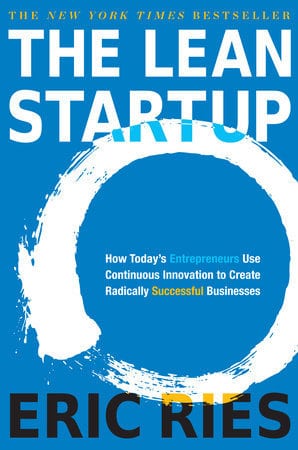3 Practices to Cultivate Your Empathy Advantage
It’s no secret that entrepreneurship is a difficult path, with many pitfalls along the way. According to Merriam-Webster, the very definition of an entrepreneur is someone who “assumes the risks of a business or enterprise.”
There’s no magic solution that’s going to remove that risk or guarantee your business will succeed. When you set out to build a new business, you do so with the knowledge that many who have gone before you have failed.
That said, there is one skill you can cultivate that will significantly increase your chance of success: effective empathy.
Unlocking your empathy advantage
It’s easy to brush past empathy as another “soft skill” that’s nice to have, all things considered. But in the modern world of business, effective empathy is a skill that can make or break your ability to succeed.
At its core, empathy is the ability to see life from another person’s perspective, to “put yourself in another person’s shoes,” as the saying goes. In business, effective empathy allows you to get inside the mind of your target audience, and identify problems (from their perspective) that you can help solve.

Contrast this with the approach many entrepreneurs take: scratching their own itch by solving their own problems and selling the solution. Sometimes, this works—but only because enough people with the same problem are seeking a solution. Maybe you'll luck out, but it' a risky bet.
Ángel Cabrera, President of George Mason University, put it this way in a report from Forbes, “At its very heart, a business is the beauty of bringing together people and things to make the community better off—these are the businesses we admire. Empathy is the one tool that makes it all happen.”
Here are three practices I'd recommend for cultivating your empathy advantage:
1. Seek first to understand, then to be understood
This comes directly from Stephen Covey’s classic bestseller, The 7 Habits of Highly Effective People. When this approach becomes your priority, every interaction with a potential customer becomes “How can we help you?” instead of “Here’s how we can help.”
That subtle difference completely shifts the conversation, making your potential customers feel valued. This approach keeps you on track to create products or services that meet real needs your audience shares.
If you only adopt one of these practices, choose this one. Setting your own ambitions aside to truly understand another person is a required first step to cultivate empathy.
2. Use data to understand others
Conversations with customers are crucial. But as your business grows, they become increasingly difficult to scale. That’s where data comes in, which provides a high-level perspective on your audience’s needs.
This data could be in the form of purchase trends, campaign success, or digital tracking data from a tool like Google Analytics. Inside Platform University, we also recommend audience surveys as a great way to get a pulse on your audience from time-to-time.
Whatever the source, it's best to inform your empathy rather than relying solely on “gut feelings” or “hunches” you haven’t backed up with audience research first.
3. Test your assumptions, repeatedly
By its very nature, every new business is filled with assumptions. It’s impossible to avoid that. The key is to identify your assumptions and test them, before betting the farm on a “sure bet” that might surely fail.
 In The Lean Startup, Eric Ries identifies two core “Leap of Faith” assumptions which every business makes. The first is the “Value Hypothesis,” which assumes your product delivers value to the customer in some way. The second is the “Growth Hypothesis,” which assumes new customers will find the product, and that the business model can scale.
In The Lean Startup, Eric Ries identifies two core “Leap of Faith” assumptions which every business makes. The first is the “Value Hypothesis,” which assumes your product delivers value to the customer in some way. The second is the “Growth Hypothesis,” which assumes new customers will find the product, and that the business model can scale.
For your business to succeed, your assumptions about both value and growth need to be accurate. That’s why you should identify the assumptions you're making, and find creative ways to test these with your audience or target audience.
The ability to empathize effectively is one of the surest indicators of whether or not an entrepreneur will create a lasting business, regardless of the industry or niche.
Regrettably, it’s also one of the most likely skills to be overlooked, denigrated as an innate skill you either have or you don’t. The truth is, anyone can cultivate empathy with an intentional approach.
Use this to your advantage, and place empathy at the core of your business. With that superpower in place, you’ll drastically increase your chance of success.
Disclosure of Material Connection: Some of the links in the post above are “affiliate links.” This means if you click on the link and purchase the item, we will receive an affiliate commission. Regardless, we only recommend products or services we use and believe will add value to our readers. We are disclosing this in accordance with the Federal Trade Commission’s 16 CFR, Part 255: “Guides Concerning the Use of Endorsements and Testimonials in Advertising.










